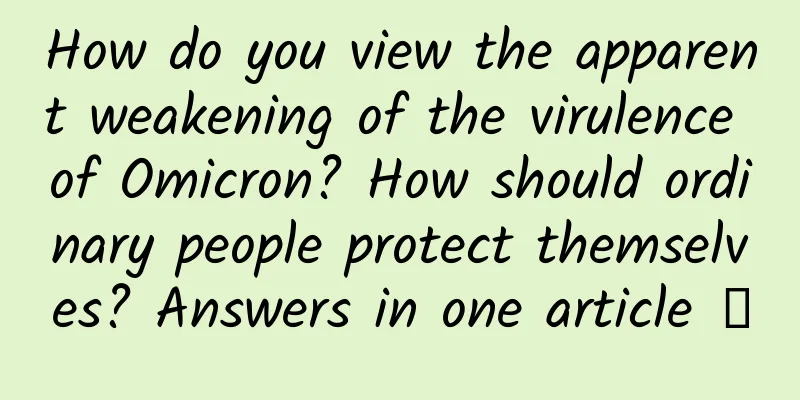“Why didn’t the dentist give me dental implants?” Why are dental implants related to the nose?

|
Before reading the article, listen to an original popular science music about this story, "Why Don't You Give Me Teeth?" "Why didn't the dentist implant my teeth? He also told me to have my nose checked." When Lao Li asked me this question, there was more confusion and disappointment on his face. Mr. Li was introduced to my clinic by the dentist. Before that, he came to the hospital mainly for dental treatment. "Doctor, I have had periodontal disease, and my teeth have started to fall out in the past two years. Later, I saw a friend go to the hospital to get dental implants, and the results were very good, so I was tempted. Unexpectedly, the dentist refused to implant my teeth and asked me to come to you to see my nose. Why is that?" I browsed Lao Li's medical records while listening to his complaints. "Don't worry, the dentist is doing this for your own good! I know the reason. The culprit is a maxillary sinus cyst." I checked his CT scan and explained it to him... In recent years, with the gradual popularization of dental implant technology, cases like Mr. Li's are not uncommon in our otolaryngology clinic. Dental implants are known as "the third set of teeth for humans". This title comes from their ability to simulate the function and appearance of natural teeth, providing patients with missing teeth with a restoration solution that is close to nature. Dental implants do not involve wear on adjacent teeth, provide better chewing ability and aesthetic effects, and are also conducive to maintaining oral hygiene. In addition, dental implants have a high long-term success rate and can be used for decades with proper maintenance, making them an ideal choice for the restoration of missing teeth. Since dental implants are so good, why doesn’t the dentist give Mr. Li dental implants? The culprit is his "maxillary sinus cyst"! This starts with the anatomical structure of the oral cavity and sinuses. If the oral cavity is compared to a room, the neighbor upstairs is the maxillary sinus. In the past, when dental implants were not popular, we may have heard more about "porcelain teeth". Porcelain teeth usually rely on the original tooth roots or grind the adjacent teeth for attachment, while dental implants are titanium alloy implants (i.e. artificial tooth roots) implanted directly into the jawbone. To put it in an analogy, it is like decorating the oral cavity. The original technology belongs to "soft decoration", while dental implant technology belongs to "hard decoration". If you need to implant a molar in the upper alveolar position, you need to drill a long "screw" upwards on the ceiling of the mouth. If the ceiling is relatively thin, it may penetrate directly into the room upstairs - the "maxillary sinus". Lao Li's situation is more troublesome. Through a CT scan, it was found that he had a cyst of a medium size in his maxillary sinus. Imagine that you are taking a leisurely bath in the bathtub, and your downstairs neighbor is installing a chandelier. Suddenly, a long screw penetrates the floor of your house and drills through your bathtub. How embarrassing! The cyst in the maxillary sinus is just like a bathtub full of water. If the bathtub is broken, it will leak at most, but the situation in the maxillary sinus is more troublesome, and secondary infection is not uncommon. "Do I need surgery for this cyst? I won't know without a check-up. There are no symptoms at all." It can be seen that Mr. Li is still a little nervous. "Of course, the decision of whether to surgically remove this cyst is yours." I weighed the pros and cons with him in detail. If most maxillary sinus cysts are not large and do not produce local compression symptoms, they can be observed and followed up, and surgery is not necessary. However, if there is a need for dental implants in the future, in order to avoid secondary damage and infection, which may lead to implant failure, it is recommended to perform a minimally invasive surgery to remove the cyst before implantation. Therefore, if Mr. Li wants to have dental implants, it is a wise choice to have the maxillary sinus cyst removed surgically in our otolaryngology department in advance. Later, after Mr. Li underwent surgery in our department, he returned to the Department of Stomatology for dental implant surgery. The dentist took into consideration that Mr. Li had less alveolar bone and performed bone grafting first, then a second-stage dental implant, which was foolproof. In fact, we often encounter this kind of multidisciplinary cooperation in clinical practice. Patients are often "interdisciplinary" when they are sick, so doctors from different departments should also work closely together to better protect the public health. |
<<: Why are girls getting their periods at younger and younger ages?
>>: Is surgical anesthesia just a “shot” and it’s done?
Recommend
I took birth control pills and still got pregnant
Nowadays, many young people do not want to have c...
How long does it take for menstruation to stop after giving birth?
After giving birth, pregnant mothers will find th...
What are the disadvantages of tile adhesive? What should be paid attention to in the construction of tile adhesive?
Many friends can't tell whether tile adhesive...
Sad! Less than 2 years after being diagnosed, she unfortunately passed away, "I regret not taking it seriously"...
November 22 Anti-cancer blogger with millions of ...
Early Down syndrome screening report
I think many pregnant mothers are familiar with D...
How long do I need to rest before I can go back to work after a miscarriage?
Although contraceptive methods are very advanced ...
What kind of dance is better for girls to learn?
Women are born to love beauty, and learning dance...
Why is the leucorrhea yellow before menstruation?
Menstruation is a characteristic physiological be...
What to do if your pubic bone is high
What should I do if my pubic bone is high? Accord...
What are the causes of body deficiency and cold uterus and how to treat it?
When women chat, they often bring up a topic, whi...
Why is the skin on the inner thigh darkening?
Each of us has a different physique and skin colo...
The number of primary and secondary school students suffering from scoliosis in my country has exceeded 5 million. How to prevent and treat it?
When we describe a person as being in high spirit...
Stay away from digestive tract infectious diseases, you need to know this secret
"We pay a lot of attention to food hygiene, ...
Why do women urinate frequently in the middle of the night?
In daily life, I believe that many female friends...
What are the early symptoms of polycystic ovary?
Once suffering from polycystic ovary syndrome, fe...









